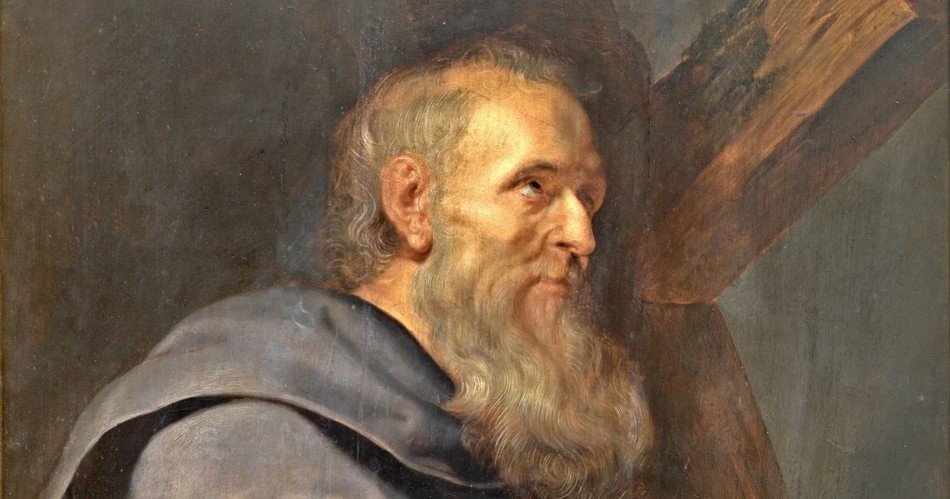Philip the Apostle, one of the original twelve disciples of Jesus, is a somewhat enigmatic figure in the New Testament, mentioned primarily in the Gospel of John. His name, Philip, is Greek (Philippos), which might suggest he had a Hellenistic background, although he hailed from Bethsaida in Galilee, the same town as Peter and Andrew.
Philip appears several times in the Gospels, often playing a role that bridges between Jesus and other people. One of his most notable moments is when he first meets Jesus. According to John 1:43-46, Jesus finds Philip and simply tells him, "Follow me." Philip then finds Nathanael and tells him about Jesus, asserting that they have found the one Moses wrote about in the Law and about whom the prophets also wrote—Jesus of Nazareth. His immediate evangelism reflects his quick acceptance of Jesus as the Messiah.
In another significant interaction during the feeding of the 5,000, Philip responds to Jesus’ question about where to buy bread so that the people may eat. His reply underscores the impossibility of feeding such a large crowd with their limited resources, highlighting the miraculous nature of what Jesus was about to do (John 6:5-7).
Philip is also involved in a poignant scene just before the Last Supper, in John 12:21-22. Some Greeks who had come to worship at the Passover Feast approached Philip and requested to see Jesus. This incident underscores Philip's role as an intermediary between Greek-speaking Jews and Jesus, fitting with his Greek name and possibly his cultural affinities.
The final reference to Philip in the Bible is in the Acts of the Apostles, where he is listed as one of the Apostles present in the upper room of Jerusalem after Christ's Ascension (Acts 1:13). However, unlike Peter, John and others, Philip does not feature prominently in the Acts narrative, which shifts focus towards the broader mission of the early church.
Philip's story in the New Testament underscores the themes of discipleship and evangelism. His interactions with Jesus and his immediate willingness to share the Good News provide insight into his character as an eager and dedicated follower of Christ. He exemplifies an effective witness, bringing others to Christ through his testimony and actions.
Facts about Philip the Apostle
1. Jesus personally reached out to him.
The interesting thing about Philip, one of Jesus’ 12 disciples, is that Jesus personally reached him. While Philip brought Nathanael to Jesus, and Andrew brought Peter to Jesus, no one brought Philip to Jesus. Instead, Jesus came right to him. John’s Gospel tells us, “The following day Jesus wanted to go to Galilee, and He found Philip and said to him, ‘Follow Me’” (John 1:43). Normally, God reaches people through people, but this was an exception to the rule.
2. Philip quickly reached out to Nathanael with the good news of Jesus.
We don’t know a lot about Philip. The Gospels of Matthew, Mark, and Luke give us no details about him. All of Philip's vignettes appear in the Gospel of John. But from that Gospel, we discover that he was a completely different kind of person than Peter, Andrew, James, or John. He is often paired with Nathanael (also known as Bartholomew), whom he brought to Jesus.
“Philip found Nathanael and said to him, ‘We have found him of whom Moses in the Law and also the prophets wrote, Jesus of Nazareth, the son of Joseph’” (John 1:45).
3. Philip was practical.
It also would appear from John’s account of the Feeding of the Five Thousand that Philip may have been in charge of the supplies and food, the road manager of sorts. He was the kind of guy who was practical, always thinking about the bottom line.
And on this occasion, Jesus, trying to stretch Philip’s faith, posed a question to him as the crowd gathered: “Where shall we buy bread, that these may eat?” (John 6:5). Philip responded, “Two hundred denarii worth of bread is not sufficient for them, that every one of them may have a little” (verse 7).
Philip didn’t do so well on that test. He wasn’t the first to have the most faith, but he was a follower of Jesus who was used by God.
4. Philip was martyred.
According to church history, Philip laid his life down for Christ, being stoned to death after reaching many with the gospel.
The Apostle Philip is believed to have died as a martyr, though details of his death are not clearly documented in the canonical scriptures. According to various early Christian traditions, Philip preached the Gospel in Phrygia (part of modern-day Turkey) and died in the city of Hierapolis.
One of the most enduring accounts of Philip's martyrdom comes from later hagiographies, which suggest he was crucified upside down or, by some accounts, stoned to death. These traditions, however, developed centuries after his death and should be viewed within the context of the development of early Christian martyrdom narratives, which often sought to highlight the apostles' faithfulness unto death.
The Apostle Philip is also often confused with Philip the Evangelist.
Philip the Evangelist
The man mentioned in Acts 8 who, during severe persecution, “went down to a city in Samaria and proclaimed the Messiah there” (Acts 8:5) was also called Philip, but this was not Philip the Apostle. Rather, this man is known as Philip the Evangelist (Acts 21:8) or Philip the deacon.
Acts 8 tells us an angel of the Lord led Philip the evangelist to an Ethiopian eunuch, “a court official of Candace, queen of the Ethiopians, who was in charge of all her treasure. He had come to Jerusalem to worship” (Acts 8:27). Although the eunuch worshipped God, he did not understand the Scriptures. Philip explained the gospel of Christ to this man and baptized him there along the road.
Taken from “Practical Philip” by Harvest Ministries (used by permission).
Photo Credit: GettyImages/ChristianChan








